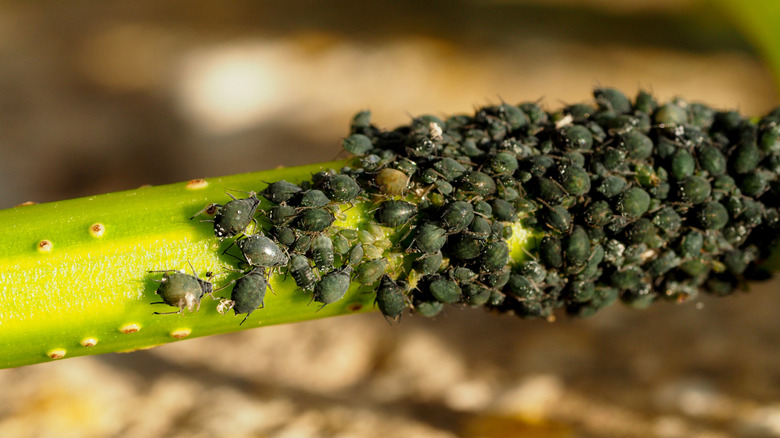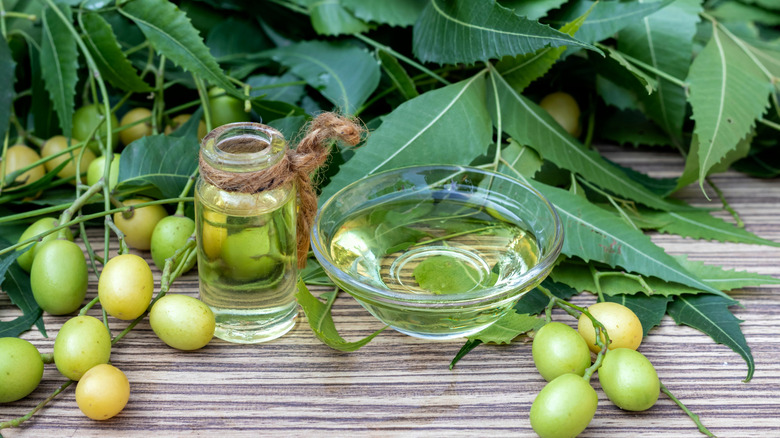How To Get Blackfly Pests Out Of Your Garden (& Prevent Them From Ever Coming Back)
We may receive a commission on purchases made from links.
Blackflies, also known as black bean aphids (Aphis fabae), are not true flies, and are not to be confused with black flies. They're one of several hundred different species of aphid that can inhabit gardens. Most of the time, blackflies are a minor nuisance that produces negligible injury to plants and provides nourishment to beneficial insects like ladybugs and lacewings. However, in large numbers and when present on young plants, blackfly can cause significant damage. These sap-sucking bugs can stunt plant growth, cause leaf distortions, transmit plant viruses, and produce sticky honeydew that leads to sooty mold growth. As the common name implies, black bean aphids usually infest bean plants, but they also live on at least 80 other host plants, including vegetables like beets, lettuce, cabbage, and peas.
Fortunately, there are a few effective measures for getting rid of aphids, including spraying water on the colonies for immediate removal, neem and peppermint oil treatments, and preventive measures like companion planting and garden upkeep. Early detection is crucial because blackflies reproduce rapidly, with a single female producing about 80 young aphids in a week. At about a ¼ of an inch long or less, blackflies may be hard to detect initially. However, in large colonies, they're easy to spot. You'll typically see them on the underside of leaves or gathered along stems and flower buds. Another key indicator of blackfly is the presence of ants, which are usually attracted to the honeydew that aphids excrete.
Blackfly treatment and prevention methods
In smaller numbers, blackflies can be controlled by spraying water across any area where populations have gathered, including the underside of leaves, stems, and flower buds. Insecticides are not the most effective control method. They won't reverse virus transmission from existing aphids, they become less effective with repeated use, and they harm plants and good bugs that prey on pests in your garden. Low-risk insecticidal solutions are preferable to maintain plant health and protect beneficial insects.
Neem oil is a great alternative to common insecticides. Azadirachtin is the active ingredient in neem oil that reduces insect appetite, effectively starving the blackflies over time. It also impacts hormones that affect the insect's ability to reproduce. Bonide Captain Jack's 64 oz Neem Max Cold Pressed Neem Oil Spray is a budget-friendly solution for curbing blackfly populations. To effectively control infestations, spray neem oil every one to two weeks. Peppermint oil is also an effective natural treatment for aphids. Mix 15 drops of peppermint oil in a spray bottle with one cup of water, then spray it on affected areas.
Proper planning and hygienic gardening practices are the most effective way to prevent future infestations. Remove weeds regularly, since these plants provide preliminary homes for aphids before they make their way to your garden plants. Keep aphids from ruining your garden with strategically placed companion plants, like marigolds, garlic, scorpion weed, chives, and nasturtiums. Reflective mulches can also prevent blackfly infestations by reflecting ultraviolet light, which makes it difficult for the aphid and other predatory insects to locate the plants.

